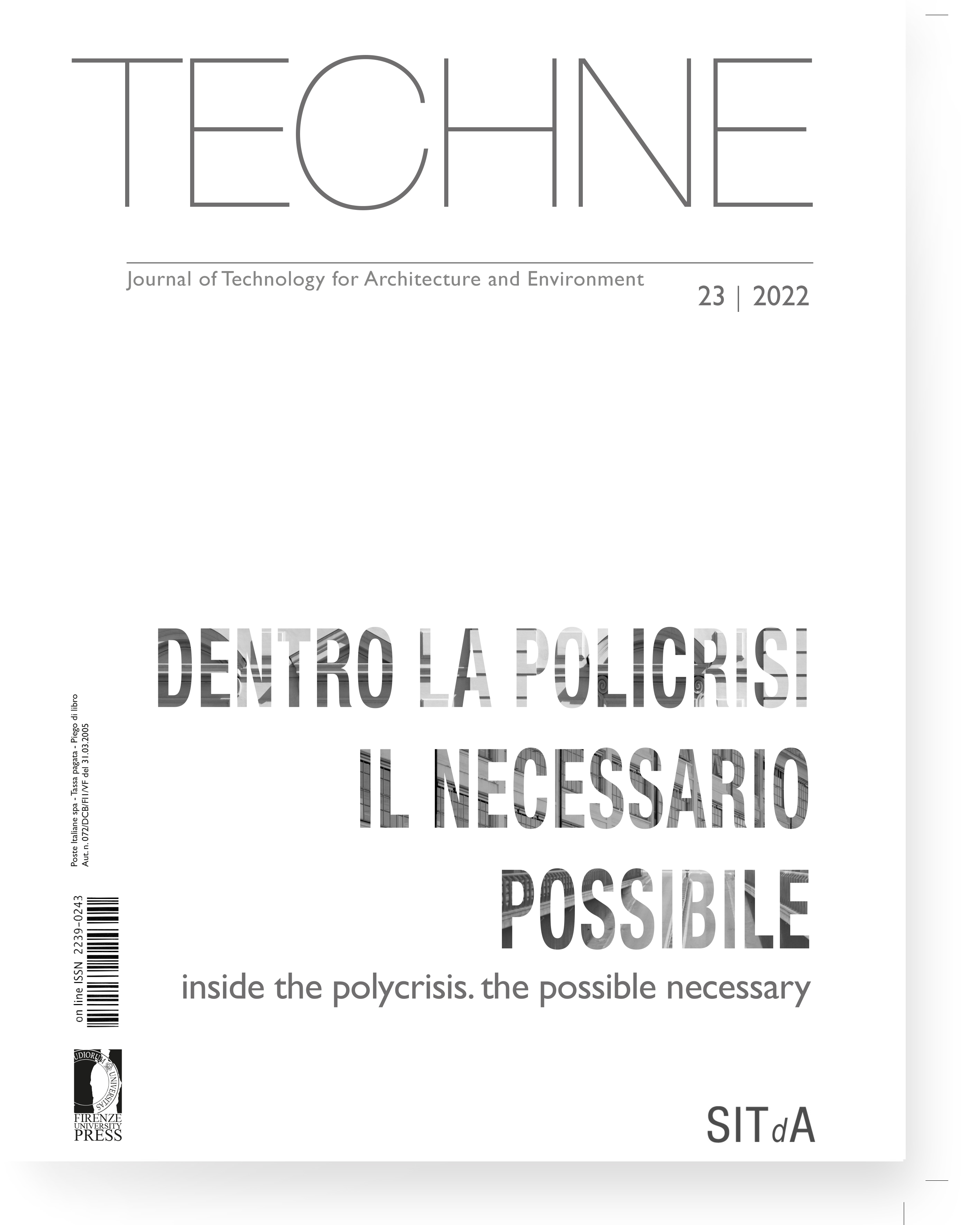Published 2022-03-17
Keywords
- urban regeneration,
- public policies,
- process and product innovation,
- innovation partnership,
- innovation contract
How to Cite
Abstract
The contribution explores the structural conditions of urban regeneration starting from the role of
public operators in the management of decision-making processes, also with reference to the
planned urban planning and public administration reforms. Recognising the inability to affect
structural problems, such as rent formation, it highlights the limits in the experimentation of
redistributive/perequative tools and the shortcomings of technical regulations, which have resulted
in real estate developments whose economic-financial profile does not reverberate in real
processes of eco-social transformation.
The author also emphasises the need to recompose the relationship between the scales of the
urban plan and the urban and architectural project, and the need for assessment tools that
integrate the economic dimension with the environmental and social ones. Together with the need
to promote inter-institutional, intercalary and intersectoral governance systems through the use of
new procedural tools (partnerships and innovation contracts).






